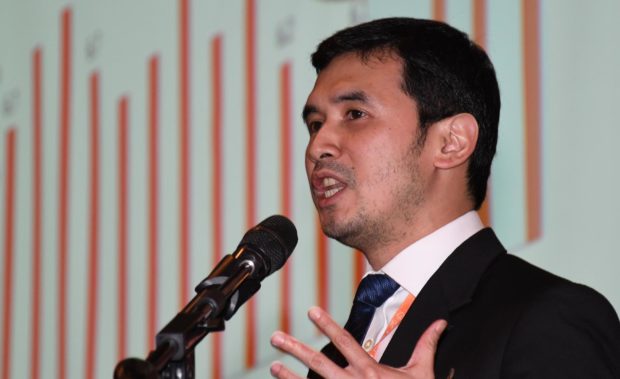Credit downgrade fears loom over next president
The government’s debt specter will likely be a key challenge for the next president as the COVID-19 pandemic will no longer work as a “get-out-of-jail-free” card against sovereign credit downgrade risks starting 2022.
This enlarged government debt as a ratio of gross domestic product (GDP)—which hit a 16-year high of 63 percent at end-September despite the country’s better-than-expected third quarter GDP growth—is among those keeping ING Philippines economist Nicholas Mapa awake at night.
“We’re gonna have to grow much faster to eat into the debt,” Mapa said, noting that the government would be susceptible to a credit downgrade if it won’t rein in the debt-to-GDP ratio below the critical 60-percent threshold.
But the road to recovery remains “choppy,” and the government debt that piled up during the pandemic may only constrain fiscal spending in the coming years, Mapa said.
Long way back
The economist expects the Philippines to return to prepandemic productivity level by the second half of 2022, still sees a long way to go back to the prepandemic annual growth path of over 6 percent.
Article continues after this advertisementPrior to COVID-19, Mapa said the recipe for the over 6-percent GDP growth trajectory was to get the economy firing on all cylinders with consumption, capital formation and government spending all growing sharply.
Article continues after this advertisementIn 2022, Mapa projected that the country’s GDP would grow by 4.8 percent, broken down per quarter as follows: 5.6 percent for the first quarter, 4 percent for the second, 5.7 percent for the third and 4 percent for the fourth quarter.
This fourth quarter of 2021, he is expecting growth to come in at 5.3 percent.
“For the Philippines, we’ll need to see a more convincing recovery for capital formation, which in turn will take its cue from a solid string of robust consumption growth. Meanwhile, with government likely holding the reins on spending due to ballooning debt, the prospect of the [economy] firing on all cylinders doesn’t look likely, at least in the next two years,” Mapa said.
“This, of course, could still be achieved, but we’ll need to see a sustained pace of strong household spending evolve into the broad-based expansion of the recent run of growth enjoyed prior to the pandemic,” he added.
Next president’s problems
Whoever will be elected as the next chief executive of the land next year, Mapa said, would have to deal with the high debt stock, the economic scarring effects of the pandemic, and to some extent, inflationary pressures.
“But I think the debt issue as well as the scarring effects will make whoever comes in face a very challenging first whole year, or maybe the entire term,” Mapa said.
Last June, London-based Fitch Ratings issued a “negative” outlook on its BBB rating on the Philippine government. It cited downside risks to medium-term growth prospects “as a result of potential scarring effects, and possible challenges associated with unwinding the exceptional policy response to the health crisis and restoring sound public finances as the pandemic recedes.”
The outgoing administration, Mapa noted, appeared like it was willing to sacrifice spending to curb debt and hoping for a faster pace of economic recovery so that debt would shrink relative to a larger economic output.
“But it looks like quite a sizable number. We had one surprisingly good quarter that was still very base effect-induced. We saw some good improvements, but I think we’re gonna have to show that we can grow even without the base effects,” he said. INQ
